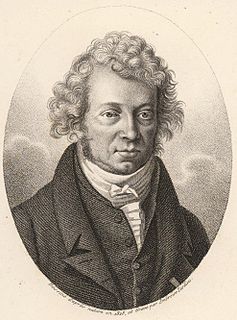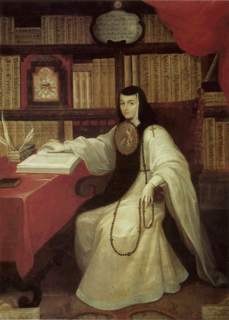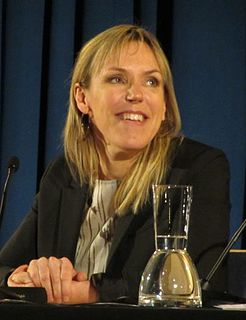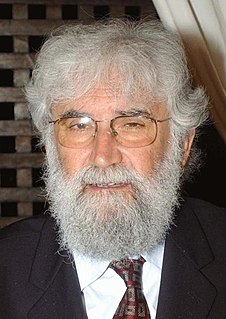A Quote by Andre-Marie Ampere
My father... never required me to study anything, but he knew how to inspire in me a great desire for knowledge. Before learning to read, my greatest pleasure was to listen to passages from Buffon's natural history. I constantly requested him to read me the history of animals and birds.
Related Quotes
I was not yet three years old when my mother determined to send one of my elder sisters to learn to read at a school for girls we call the Amigas. Affection, and mischief, caused me to follow her, and when I observed how she was being taught her lessons I was so inflamed with the desire to know how to read, that deceiving - for so I knew it to be - the mistress, I told her that my mother had meant for me to have lessons too. ... I learned so quickly that before my mother knew of it I could already read.
I can no more explain why I like "natural history" than why I like California canned peaches; nor why I do not care for that enormous brand of natural history which deals with invertebrates any more than why I do not care for brandied peaches. All I can say is that almost as soon as I began to read at all I began to like to read about the natural history of beasts and birds and the more formidable or interesting reptiles and fishes.
I have to throw in on a personal note that I didn't like history when I was in high school. I didn't study history when I was in college, none at all, and only started to do graduate study when my children were going to graduate school. What first intrigued me was this desire to understand my family and put it in the context of American history. That makes history so appealing and so central to what I am trying to do.
The book on my nightstand right now isnt anything that inspired me, but it entertained me. I read a book on Labor Day, it was a holiday, and I have three daughters, and we all went to the shopping mall and I sat on the bench and read a book while they shopped, it was called The Greatest Golfer there Ever Was, it was a great book, easy to read and entertaining.
The history of the universe and nature is being told to us by the stars, by the Earth, by the uprising and elevation of the mountains, by the animals, the woods and jungles, and by the rivers. Our task is to know how to listen and interpret the messages that are sent to us. The original peoples knew how to read every movement of the clouds, the meaning of the winds, and they knew when violent downpours were coming... We have forgotten all that.
Read a lot. But read as a writer, to see how other writers are doing it. And make your knowledge of literature in English as deep and broad as you can. In workshops, writers are often told to read what is being written now, but if that is all you read, you are limiting yourself. You need to get a good overall sense of English literary history, so you can write out of that knowledge.




































